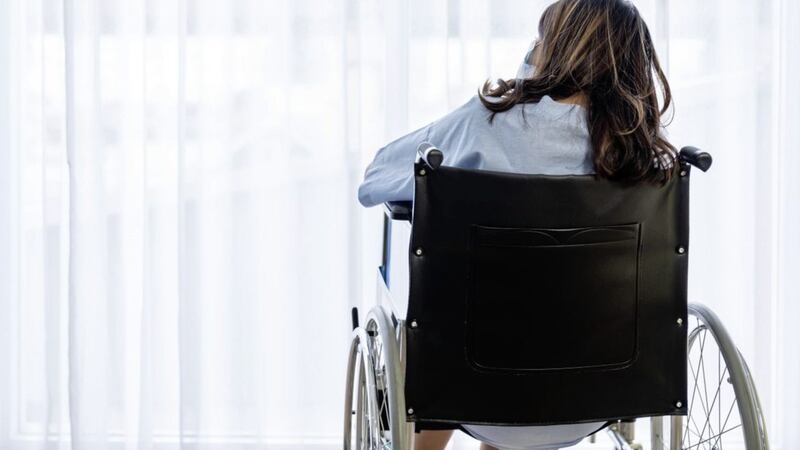SOME time ago I tried to find out how many people who died with Covid-19 in Northern Ireland had disabilities.
Data in other parts of the UK had shown people with disabilities made up six in 10 of all Covid deaths – despite accounting for just 22 per cent of the population.
Such disproportionality raised many questions, questions which we would hope our political and health leaders would be trying to find answers to.
Except to achieve solutions you need to acknowledge there is a problem. You need to want to know what the problem is and its scale.
Unfortunately both the Department of Health and the Northern Ireland Research and Statistics Agency responded that they do not collate such data and have no plans to do so.
Despite knowing that other jurisdictions are finding disabled people make up such a significant proportion of deaths during the pandemic.
Even had those overseeing the Covid-19 response not taken the most cursory read of coronavirus news elsewhere, they cannot claim to be unaware of this gaping hole in their statistical analysis.
Mencap NI raised the lack of learning disability mortality rates for Covid-19 in Northern Ireland early last summer.
It was raised again by Stormont’s All Party Group on Learning Disability in June 2020.
The assembly members asked the department to “undertake a full and accurate assessment of Covid-19-related deaths of people with a learning disability across all settings”.
They have received no formal response.
The charity wrote to the department to request the data but have had `no response or rationale as to why such a vulnerable group have not been recorded’.
This week disabled people and their carers have made their voices heard through another charity, Sense, which supports people living with complex disabilities.
Its research found that three-quarters of disabled people say their needs have been overlooked and haven’t received enough support.
Seventy-seven per cent have called for the upcoming Covid inquiry to investigate what has happened to them to prevent the same mistakes happening again.
It is likely that any such detailed investigation will find the reasons for the appalling death rate among people with disabilities are rooted in more than their physical vulnerability.
People with learning disabilities also have to cope with endemic health and economic inequalities.
If you or your parent or child has a disability you will suffer financially due to reduced employment opportunities and greater expenses than the population as a whole.
Social care will be largely provided by low-paid workers with insecure working conditions who probably were not able to afford to self-isolate and were themselves coping with a lack of basic infection control equipment.
An ONS study into coronavirus-related deaths by disability status found the biggest risk factor amongst people with learning disabilities was living with a lot of other people – e.g. in shared supported living.
Those living at home have shielded or been shielded with depleted health and social care support and mounting feelings of abandonment and anxiety.
In some cases, in some places, there is an even bleaker underlying reason.
The Guardian reported earlier this year that people with learning disabilities were still being given do not resuscitate (DNR) orders during the second wave of the pandemic, despite widespread condemnation of the practice last year and an urgent investigation by the care watchdog.
Mencap, which blew the whistle on this in England, says there have been no formal reports of such DNRs in Northern Ireland.
It may be that the north’s record on Covid-19 deaths among people with disabilities will be more positive than its counterparts.
Given the region’s high levels of deprivation, which can only exacerbate underlying health inequalities, that seems unlikely.
And the lack of data on the subject can fill no-one with confidence on that score.
But as the saying goes: Three things cannot be hidden forever, the sun, the moon and the truth.








